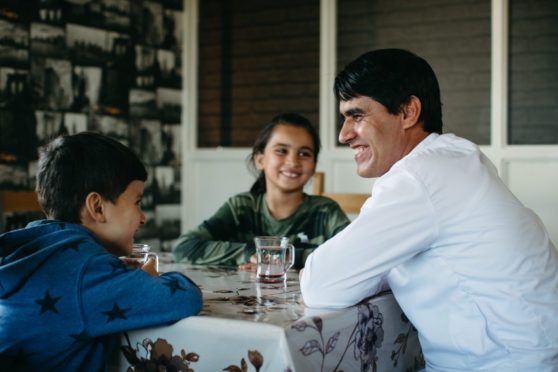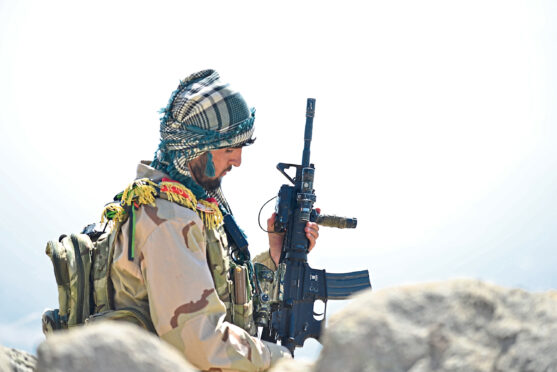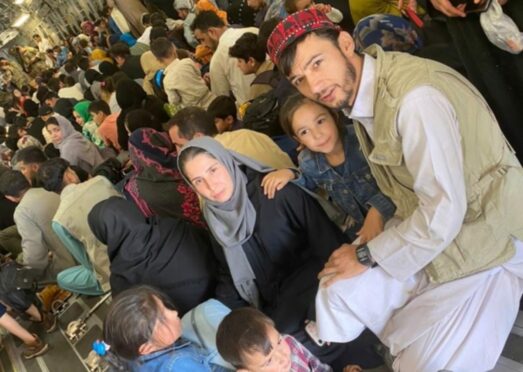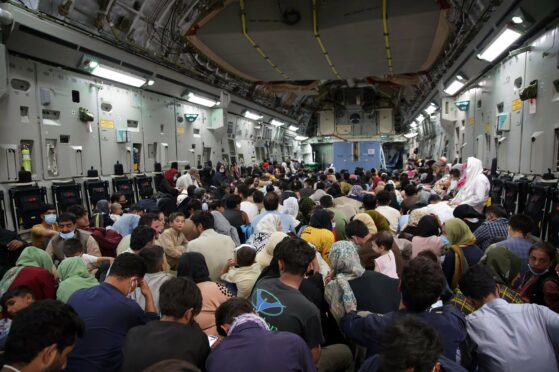
Lord Robertson of Port Ellen, former UK Defence Secretary, was Secretary General of Nato on 9/11
The developing horrors in Kabul are heartbreaking. The scenes of carnage we witnessed amidst the crowds of people trying to escape should haunt us all. Leaving vulnerable people behind is unimaginable but now inevitable.
What we are seeing is the consequence of a botched end to a 20-year mission. But it did not have to be like this. Any evacuation should be based on civilians first and military last. Doing it the opposite way this time almost guaranteed chaos.
The tragedy is that so much had been achieved over the last two decades. Not only had we prevented Afghanistan becoming a haven for the Jihadis who planned 9/11 but our forces did much more. Afghans tasted the freedom to be educated – a major breakthrough for women. They could have businesses, see sport, listen to music, vote and read a free press.
These benefits were not bought cheaply – a lot of blood and money was spent, but our forces have created a society the Taliban will find much more difficult to unwind.
Yet what was achieved and what we can be proud of is now in jeopardy. The Taliban are not nice people. They are not freedom fighters; they are brutal thugs with a medieval ideology and they now have mountains of US military equipment to help them.
There have been cheers at the US retreat from Moscow and Beijing and even from Pakistan. They will not be cheering for long. The tentacles of Jihadi violence we saw at the Kabul airport on Thursday will not stay local for long – the neighbouring counties will be very scared.
If the Taliban, ruthless killers as they have been, are caught short and embarrassed by even more extreme Jihadis, than there is real trouble ahead. And China, with its Uyghur Muslims, and Russia, with its Chechens, have good reason to be worried by the free-for-all in Afghanistan. And a question is now being heard, is Nato finished after this? It has certainly been weakened and it has lost face in this debacle. But don’t write it off.
Nato is the most successful defence alliance the world has ever seen. Thirty countries pledging to defend the smallest or the biggest if they are attacked. It’s why I read out the self-defence promise on September 12, 2001 – almost exactly 20 years ago. America had been attacked and everyone in Nato saw it as an attack on them too.
That solidarity which made me so proud when I read it out that day has now been undermined. It had, of course, been signalled – by Barack Obama and then by Donald Trump. But Joe Biden, in whom the world had so much hope, carried on with the failed policy – and just see what happened.
A mission which was coming to a natural end – the US had only 2,500 troops in the country, could have been drawn down gradually as conditions dictated. Recklessly pulling out US troops was the trigger for this descent into mayhem.
In truth all of us did not take the conflict in Afghanistan seriously enough. It burned away out of sight and was too easily ignored by political leaders. That initial determination which I harnessed as Nato took over ISAF (International Security Assistance Force) seemed to weaken with each successive prime minister. We sent out our bravest and best – but did not fully support them back home.
The main lesson then is not that interventions are a bad thing. But that if we do them we need to be behind them and the people we send. We need to want to win – and that is how we do win and avoid the scenes of the last two weeks.

Enjoy the convenience of having The Sunday Post delivered as a digital ePaper straight to your smartphone, tablet or computer.
Subscribe for only £5.49 a month and enjoy all the benefits of the printed paper as a digital replica.
Subscribe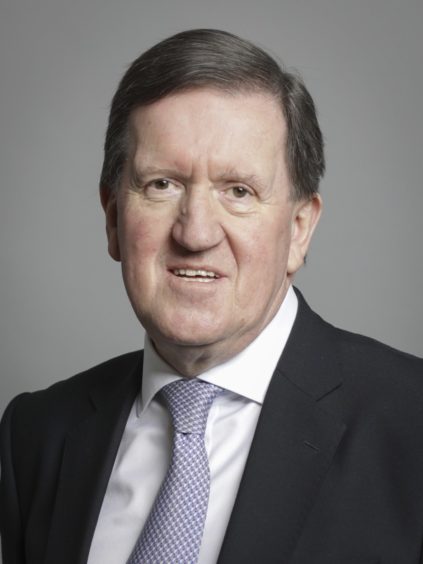 © ROGER HARRIS
© ROGER HARRIS